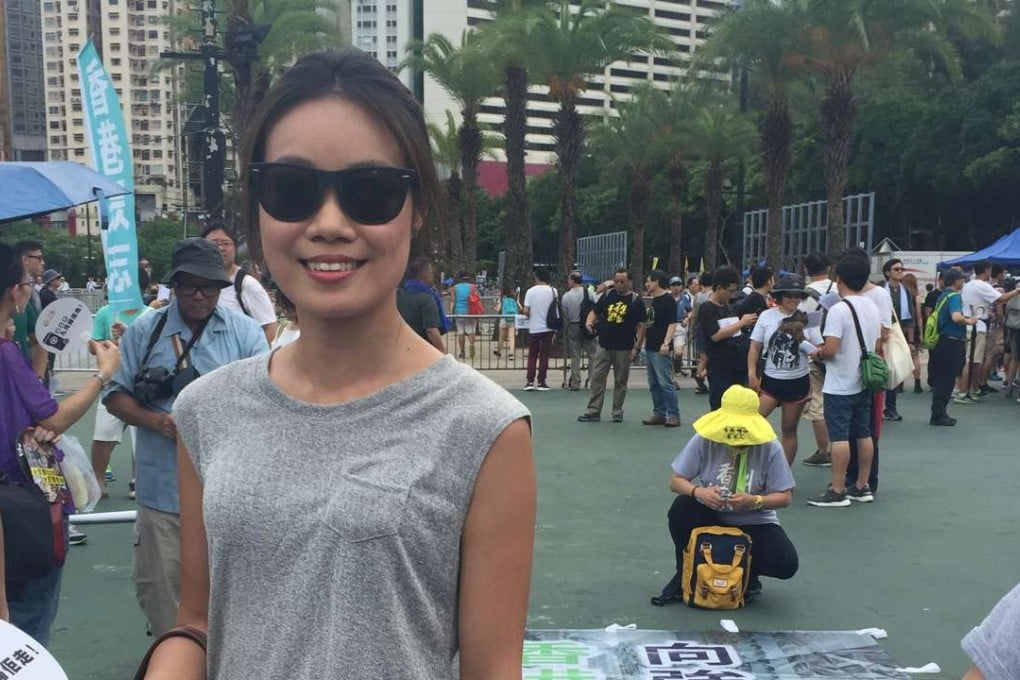Voices from July 1: protesters explain why they marched
Vanished Hong Kong booksellers and eroded freedoms among reasons cited

A few of the people who joined this year’s march explained what motivated them.
Carman Lai, 33, a service industry employee, said anger over what happened to Hong Kong bookseller Lam Wing-kee – who vanished in October upon crossing the mainland border at Shenzhen and returned last month to the city claiming he had been abducted – propelled her to march.
“I was really angry,” she said of Lam’s fears over his personal safety at the march Friday, leading him not to attend.
“This is not the Hong Kong we are familiar with,” she said. “We should not have this kind of fear. We should have freedom of speech.”
This is not the Hong Kong we are familiar with. We should not have this kind of fear
“We’re here to show the government there are still a lot of people who care about Hong Kong,” she added. “We’re really disappointed about what the government has done.”
“I feel like my life has changed a lot, especially in terms of freedom of speech and personal safety,” he said.